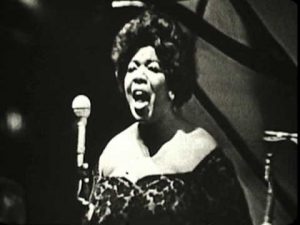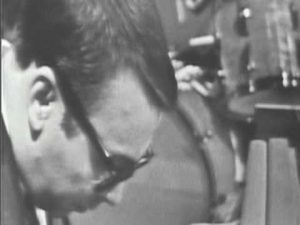In late 1929 Herman Fowler formed Fowler Studios in Los Angeles with the intent to produce a series of one reel variety shorts. Production began late in 1929, or in early 1930, with release of the shorts, (ultimately thirteen in all), beginning early in the year. Fowler employed West Coast talent, and few of the artists featured in the shorts are known to contemporary audiences. Most of the musical support is offered by Ray West and his Orchestra, although a second orchestra, led by one “Sam,” may also be involved.
Among the many interesting aspects of this series is that fact that some of the films are integrated, with featured black performers accompanied by a white big band. There is no interaction per se between the band and African-American performers, and this may have made the integration more acceptable to white members of the audiences.
Texas born Theresa Harris had a long and distinguished film career, bringing a sense of dignity to the bit parts and minor roles afforded African Americans during the 1930s and 1940s. Perhaps best known as “Rochester’s girlfriend” in Jack Benny feature films and radio broadcasts, Harris was usually relegated to the role of maid or waitress, and she rarely received the recognition that her acting talents warranted.
Harris made her feature film debut in THUNDERBOLT (Paramount, 1929), although she did not receive screen credit. At this time, until ca. 1933, Harris performed under the name Tessie Maize. She is credited as Tessie Maize in the Herman Fowler “Voice Of Vaudeville” series, sharing the stage with her brother Sam Harris, and his partner Sam Brown; while the team was often billed as “Sam and Sam,” they do not receive on-screen credit here. Also featured are seven black female chorus line dancers (billed as the Darktown Strutters), hired from one of the nightclubs in Los Angeles that featured black talent. The white band on screen is almost certainly Ray West and his Orchestra,
Harris sings “Someday Sweetheart,” written by brothers “Reb” and John Spikes, a song that would developed into a jazz standard.



